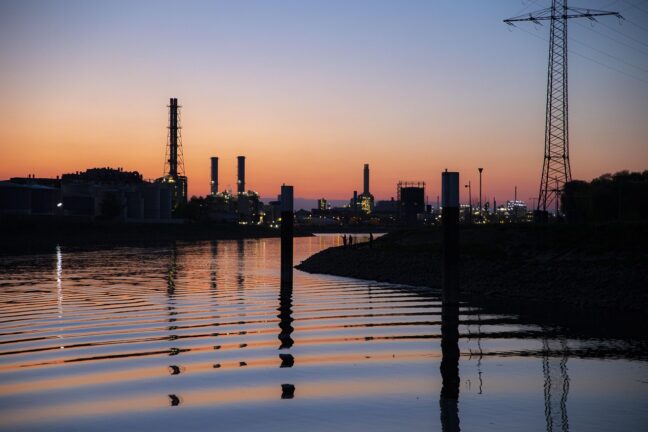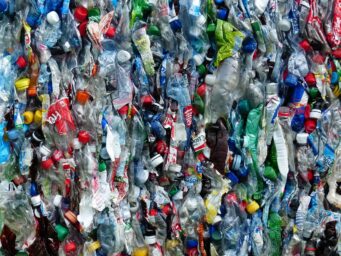Can Brussels reconcile its climate ambitions with the survival of a sector that underpins 19 million jobs? For the European Commission, the answer lies in sturdy support for strategic sites. For critics, it risks entrenching dependence on hazardous substances.
The European Parliament’s plenary session on Tuesday, 8 June 2025 became a battleground over the European Commission’s proposed chemicals package. A sprawling legislative bundle, the proposal is designed to revive the EU’s floundering chemical sector, pits industrial competitiveness against environmental safeguards.
The debate laid bare the Parliament’s divides, sharp and deep. Renew Europe and the EPP signalled cautious support, framing the plan as a necessary lifeline for a sector contributing €500bn annually to the EU economy. The Socialists, Greens, and Left vowed to challenge what they termed “weakened health protections”, with Terry Reintke (Greens-EFA/GER), co-leader of her group, calling the labelling delays “a betrayal of consumers”.
Four pillars
Executive Vice-President Stéphane Séjourné unveiled the action plan for the chemicals industry, a sixth “simplification omnibus” to streamline regulations, and reforms to bolster the European Chemicals Agency (ECHA). “The European Commission is adopting a number of essential measures for the European chemical sector,” declared Mr Séjourné. “Chemicals and industry are strategic sectors. They’re present in defence, military, medicine, and the omnipresent connected world of today, the Internet of Things. But this is an industry which is suffering.”
Some PFAS are of critical importance and it will be difficult to do away with them in certain cases. – Stéphane Séjourné, EC Vice-President
The Commissioner outlined a 50 per cent decline in the sector’s global turnover over two decades. He attributed this to soaring energy costs, unfair competition from Asia, and regulatory complexities tied to decarbonisation. “If we support the chemical sector, then it means we’ll be supporting 90 per cent of the supply chain, which is what our competitiveness depends on,” he argued, stressing the industry’s 1.2 million direct jobs.
PFAS are important
The proposal’s four pillars—subsidies for strategic production sites, energy cost reductions, demand incentives, and regulatory simplification—aim to counter these challenges. A key element is the creation of a “critical chemicals alliance” focusing on molecules like methanol and acetic acid, deemed vital for supply chain resilience.
“We’re focusing on the molecules that Europe really needs so that we can supply our own industry,” Mr Séjourné explained. “It’s similar to the philosophy we had for critical raw materials.” The package also includes €400 million annually to modernise ECHA, alongside extended timelines for compliance with labelling rules—a move critics later condemned as a health risk. On PFAS, Mr Séjourné acknowledged limited alternatives for certain industries.
You might be interested
“Some PFAS are of critical importance and it will be difficult to do away with them in certain cases, especially if we don’t have alternatives,“ the Commissioner admitted. „So some industries will have to continue to use them, including in defence and in clean tech.”
Action plan summary
Resilience & fair competition:
The Commission will create a Critical Chemical Alliance with Member States and stakeholders to protect key production sites, tackle supply chain risks, and apply trade defenses against unfair practices. It will align EU/national investments (including IPCEIs) to boost innovation and regional growth;
Affordable energy & decarbonisation:
The Commission will fast-track energy cost reductions via the Affordable Energy Action Plan, update state aid rules to lower electricity prices, promote clean carbon sources (carbon capture, biomass), and launch a chemical recycling consultations;
Market leadership & innovation:
Fiscal incentives and the Industry Decarbonisation Accelerator Act will drive demand for clean chemicals. The Bioeconomy Strategy and Circular Economy Act will boost resource efficiency and bio-based alternatives. Horizon Europe (2025–2027) will fund Innovation Hubs for sustainable substitutes;
PFAS action:
The Commission will restrict PFAS use (with exemptions for critical applications lacking alternatives), invest in safer substitutes, enforce polluter-pays remediation, and accelerate science-based emission reductions.
Collapse, or overreach?
The members held wildly varying views. MEP Christian Ehler (EPP/GER) welcomed the proposal but warned of systemic collapse, citing a wave of plant closures across Germany. “February 23, BASF plans to close up plans in Ludwigshafen. February 23, Dynon plans to close up the whole plant in Genstorf. August 23, Lanxess plans the whole closing in Krefeld-Oerdingen. July 24, BASF plans closing up plans in Knapsack and Frankfurt. October 24, Avionik plans to cut down plans in Hanau. May 25th, Bayer plans to close up plans in Hoechst. July 21st, Dow plans the complete shutting down of the Mitteldeutsche Chemiedreieck in Skopje and Berlin,“ he enumerated the grim facts.
“And this is just Germany. It’s dramatic. We are in a process of dramatic deindustrialisation. These are complete value chains. We’re at the brink, or it might be even five after 12, that we are simply ruling out the industrial base of the chemical industry in Europe,” Mr Ehler said.
Green ambitions in focus
The Socialists group vehemently opposed the plan. MEP Christophe Clergeau (S&D/FRA) condemned it as a threat to public health. “Socialists and Democrats in this Parliament condemn vehemently this proposal, which is orchestrating a huge backsliding and is a threat to human and environmental health. You wanted to change labelling when the classification has changed. The Commission is working for the industry as opposed to doing away with dangerous products.”
The ideological underpinnings of the European Green Deal are causing widespread suffering to European businesses. – MEP Georg Mayer
MEP Georg Mayer (PfE/AUT) blamed the EU’s Green Deal for crippling businesses. “There’s an old saying in Berlin about, I can hear you singing, Nightingale. The ideological underpinnings of the European Green Deal are causing widespread suffering to European businesses. We need chemicals in practically every sector of industry and farming. Environmental protection involves protecting our home, but we have to keep our feet on the ground.”
MEP Beatrice Timgren (ECR/SWE) criticised the proposal’s bureaucratic contradictions. “Chapter 2 lists new requirements flooding SMEs. The Commission wants 55 per cent less reporting, but now we’re actually heading in the opposite direction. Yes to less bureaucracy? This isn’t it.”
Consumer trust
Renew Europe’s MEP Martin Hojsík (Renew/SK) condemned weakened cancer safeguards. “In this house we had a special committee on beating cancer. The best way to deal with cancer is not to get cancer. How do you want to protect people when we are extending the timelines for companies to label cancer-causing chemicals? It’s not for the benefit of the industry nor for the benefit of its competitiveness to put hazardous chemicals that can cause cancer on the market without knowledge of the consumers.”
MEP Jutta Paulus (Greens-EFA/GER) invoked everyday risks to families. “None of you seems to have ever been to the beach with a little kid and bought them an ice cream because there’s going to be stains, then the stains will be licked off,“ she said, apparently à propos of nothing much.
Then Ms Paulus continued: “The Commission believes carcinogenic substances in cosmetics should only be banned if they cause cancer on contact with the skin because you wouldn’t swallow them. Well, that would be problematic if you go to the ice cream parlour. You want simplification, but less protection, less control, less responsibility.”
The converging fringes
MEP Per Clausen (Left/DNK) accused the Commission of sacrificing health for industry. “The only mantra which counts now is we have to make life easier for businesses. We still haven’t faced up to PFAS. Future generations will pay the price for our inaction. Once again, future generations will have to pay the price for our action or lack of inaction. And the price they’ll have to pay will be extremely high.”
The best way to deal with cancer is not to get cancer. – MEP Martin Hojsík
Far-right MEP Anja Arndt (ESN/GER) linked job losses to EU policies. “BASF and Dow are cutting jobs in Germany. This simplification is too late. A whole industrial sector is leaving us and you caused that. The ESN welcomes the one substance, one assessment initiative, but we need to scrap emissions trading. Otherwise, we won’t have any industry left. It’s time for Brussels not just to think about rules, but to think about jobs.“ Then she added, in a somwehat self-serving manner, „That’s why Europe needs the ESN and Germany needs the AfD.”
The savoir-faire
Mr Séjourné closed by defending the package’s pragmatism. “We want decarbonisation to be a lever for modernisation. We will use trade tools against unfair competition, and we have the savoir-faire. But we need to continue to feed that basis. My colleagues are here to listen to your reactions and to talk to you about the implementation of this package.”
The chemical sector’s fate now hinges on September’s plenary vote. With EU elections looming in 2026, the package has become a proxy war over the bloc’s industrial and environmental priorities.









